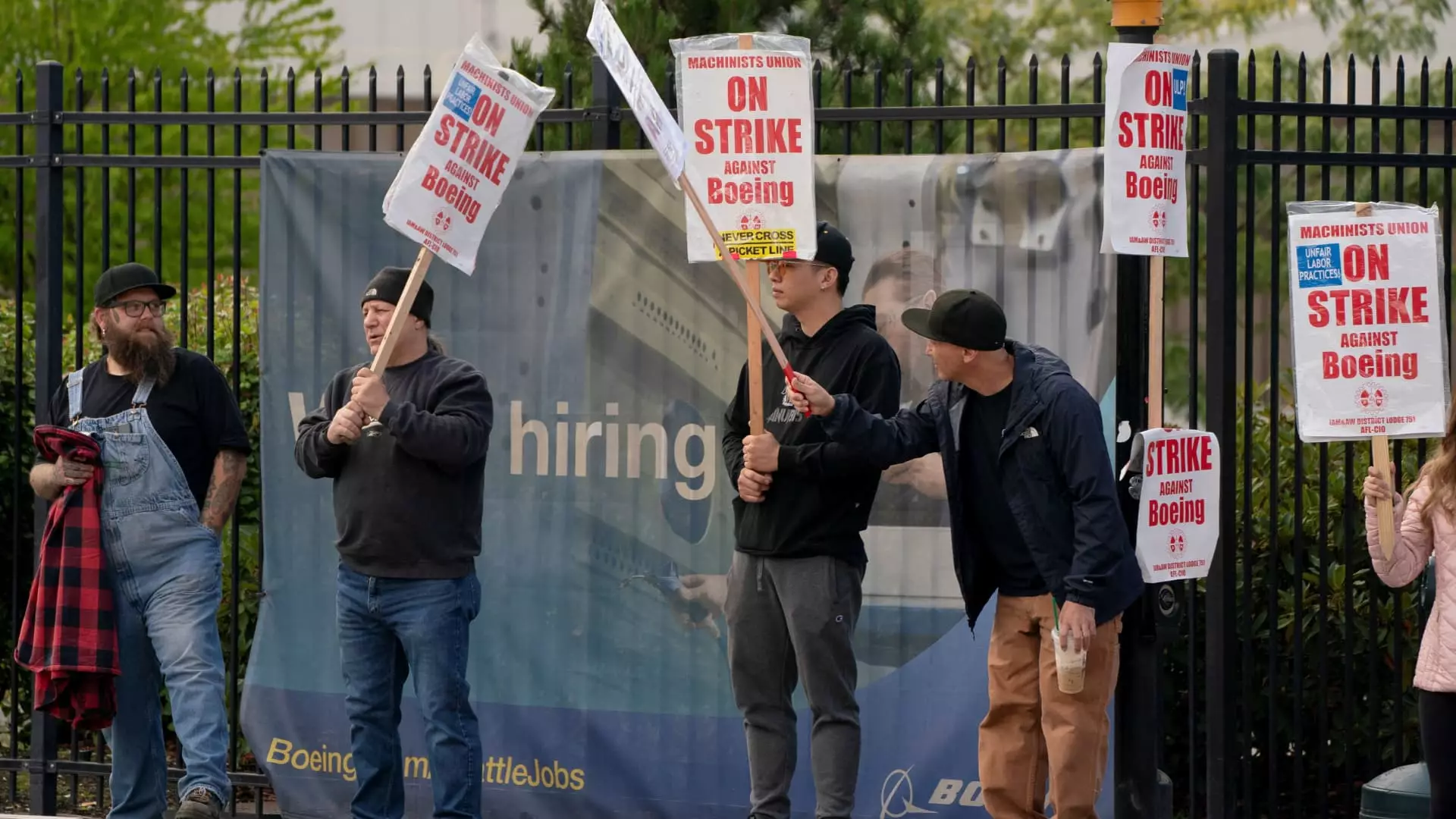In a notable move to regain financial stability, Boeing has announced substantial cost-cutting measures in response to a labor strike that has halted production lines. This strike, involving over 30,000 workers primarily in the Seattle area, erupted after workers overwhelmingly rejected a tentative labor agreement. Consequently, production across several aircraft platforms, including the iconic 737 Max, 767, and 777, has been significantly compromised. The stakes are high as Boeing navigates a precarious financial landscape while striving to negotiate a new agreement with its workforce.
Boeing’s Chief Financial Officer, Brian West, elaborated on the strategic adjustments the company will undertake to safeguard its financial health. These adjustments include implementing a hiring freeze, curtailing nonessential employee travel, and making “significant reductions” in supplier expenditures. The implications of these measures extend beyond Boeing’s immediate operations; they will also impact hundreds of suppliers dependent on the company’s aircraft production contracts. West emphasized that, while willing to negotiate with the workforce, Boeing must also consider drastic measures, including the potential for temporary furloughs affecting a broad swath of employees and management.
The current strike poses risks that stretch beyond operational delays, potentially looming over Boeing’s credit ratings. Major credit rating agencies like Moody’s and Fitch have signaled the possibility of downgrades in response to the ongoing labor disruptions. With Boeing already grappling with considerable debt—having incurred around $8 billion in losses in the first half of the year—the situation becomes ever more pressing. Increased borrowing costs could ensue, further complicating the company’s trajectory toward recovery.
As Boeing’s new CEO, Kelly Ortberg, steps into the fray, there is a palpable urgency to resolve the conflict with the workers. Immediate dialogue is critical not just for restoring normal operations but also for reassuring stakeholders about the company’s commitment to a sustainable path forward. The longer the strike persists, the more pronounced the financial impact will be, which could culminate in severe operational repercussions.
While West reassured stakeholders that safety and quality control budgets would remain intact, the broader concern is how Boeing will emerge from this tumultuous period. It faces the challenge of balancing necessary cuts with the need to maintain vital operations that ensure airworthiness and customer satisfaction. In doing so, Boeing must walk a fine line between safeguarding its future while still valuing the workforce that propels its operations. The situation remains dynamic, with the future hanging in delicate balance as all parties involved seek a workable resolution.


Leave a Reply